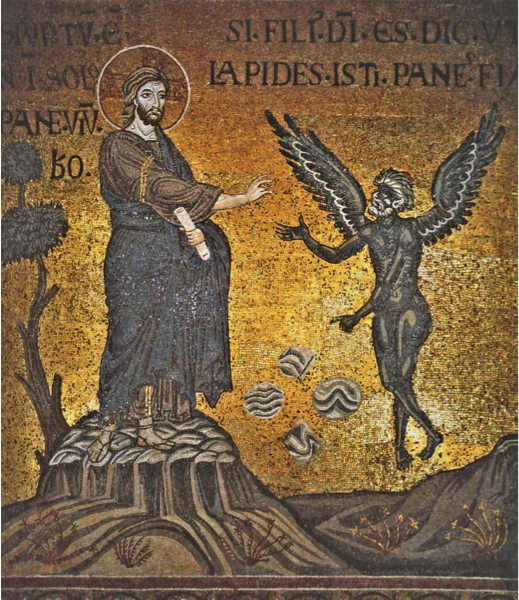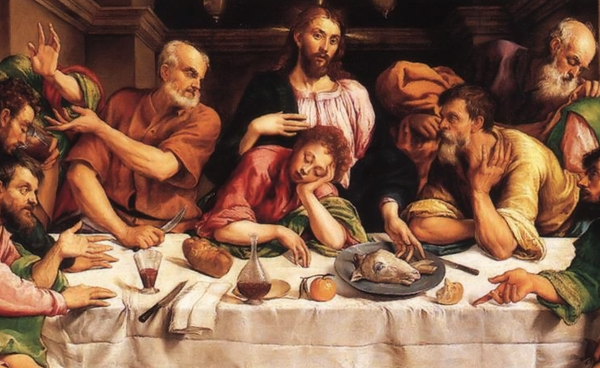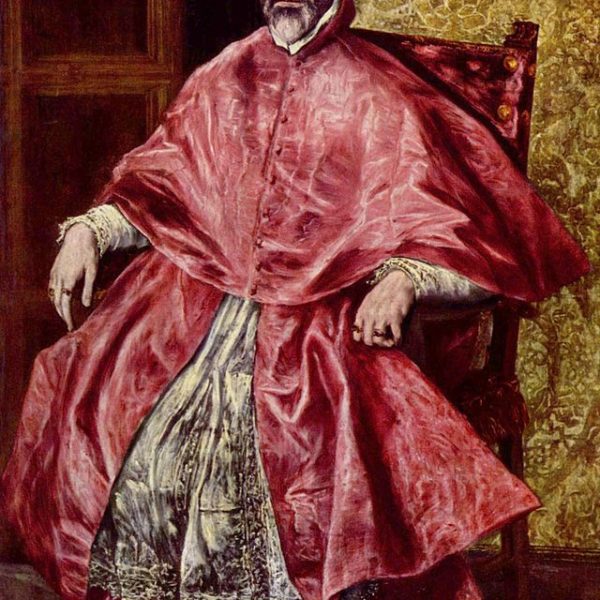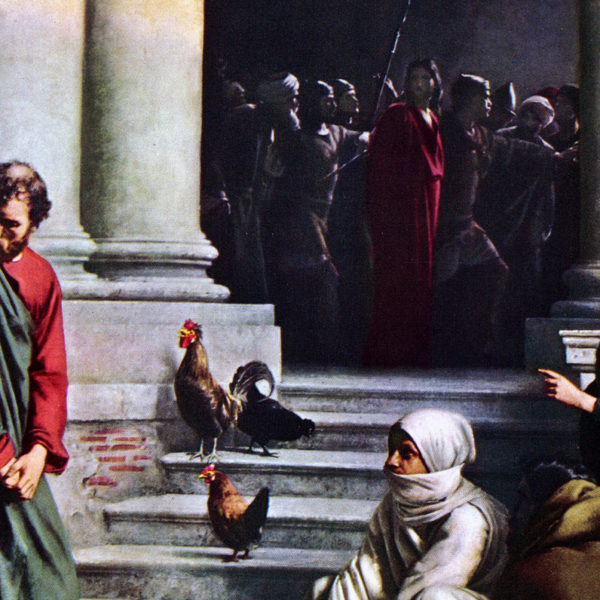
If Dostoyevsky foresaw the rise of the 20th century totalitarian states as the father figures who would feed the masses in the first temptation, what did Dostoyevsky foresee here with regards to his feared future Catholic theocracy? What Dostoyevsky saw was how the captivating of the conscience through miraculous ecstasy could manifest itself, in games and permissiveness.

In his richly devotional book Writing in the Sand, the psychotherapist and former monk, Thomas Moore makes an intriguing hermeneutical suggestion. When we explore the ministry of Jesus and its contemporary implications, one fruitful exercise is to view his actions through the lens of the ancient philosophy of Epicureanism. At first glance, such a suggestion seems antithetical to any faithful rendering of the New Testament.

As on so many issues that divide left-wing and right-wing Christians, the Bible seems frustratingly pliable when it comes to the issue of property rights. Conservative Christians like to assert that the Bible takes private property for granted, that the Eighth Commandment demonstrates it to be a “divine institution” or a “sacred right,” and that the many examples of wealthy patriarchs prove not only private property, but large accumulations of it, have divine sanction. Those more inclined toward some kind of Christian socialism like to point out Jesus’s very harsh strictures on the accumulation of wealth and the assertion of private property rights, and the early Jerusalem community’s practice of “having all things in common.” As so often happens, we seem to be faced with something of an Old Testament/New Testament divide, in which the Old Testament bolsters a conservative agenda, and the New Testament a liberal one. Is the Bible thus divided against itself?
Four years ago, I was an idealistic college student who believed in change. Frustrated with the years of Bush-style imperialism and capitalism, I was ready for some big government and the return of civil liberties, singing the doxology Praise God From Whom all Blessings Flow as balloons reigned down and Obama waxed eloquent on a stage overlooking thousands of people. Needless to say, I have learned my lesson over the last four years. Although a less harmful sovereign, Obama turned out to be—surprise, surprise—a neo-liberal. The problem, however, was not with Obama, it was with me….

Are we not the Gentiles who have leaders ruling over us? Are we not the ones who obey the rules that are placed upon us? Isn’t it true that we have tyrants that are more concerned the upper class and middle class than with those struggling to get by, living paycheck to paycheck? Jesus demands a non-leadership leadership from his disciples. Something more topsy-turvy than the world’s standards that resemble social Darwinism….

The number of people in the U.S. living below the poverty line in 2011 was 46.2 million, the highest in the more than 50 years that records have been kept.[i] (1961 is a few years before Lyndon Johnson’s “War on Poverty,” and about seven years before the Southern Christian Leadership Conference organized the “Poor People’s Campaign” that would take Martin Luther King, Jr. to Memphis.) Why then is so little attention being paid to poverty and poverty-related issues in the current presidential campaign?…
The scathing criticisms of private property that we find in the mouth of Jesus are well-known. “Go, sell what you have,” he tells the rich man who asks for the secret of eternal life (Mark 10:21; Matthew 19:21; see also Luke 12:33). Again and again, we encounter the polemic against property, the possession of which is regarded as an evil and as a massive hindrance to joining the kingdom of God. Jesus valorises simplicity over luxury and forgoes the influence and power that comes with wealth. In short, everything about him stands against the deep values of the Hellenistic propertied classes. In the words of G.E.M. de Ste. Croix, “I am tempted to say that in this respect the opinions of Jesus were nearer to those of Bertholt Brecht than to those held by some of the Fathers of the Church and by some Christians today” (Ste. Croix 1981: 433).
I am less interested here in the twisting and turning by later exegetes to ameliorate these embarrassing texts, and my concern for now is not the Christian communist tradition that finds inspiration in these and other texts (Acts 2:44-5; 4:32-5). Instead, I suggest that this implacable opposition to property has a far deeper reason. Simply put, the very definition of private property, invented by the Romans a little over a century before the time of Jesus, is based upon slavery. That is, private property relies on the reduction of one human being to the status of thing (res) that is “owned” by another human being. Let me explain…..



